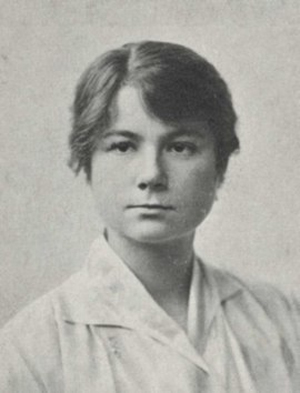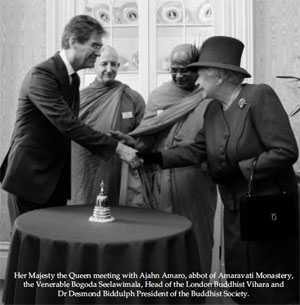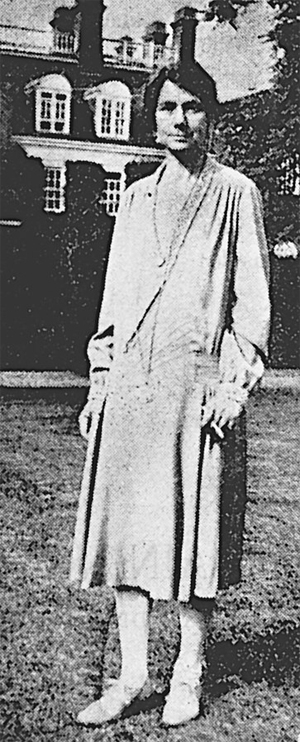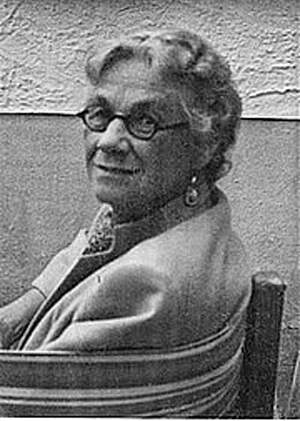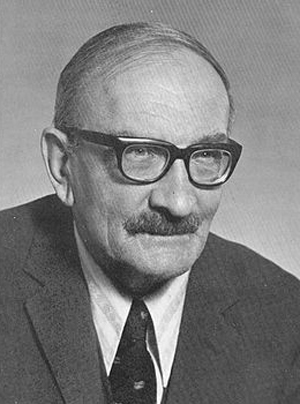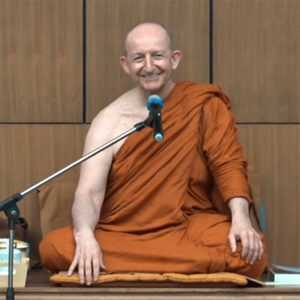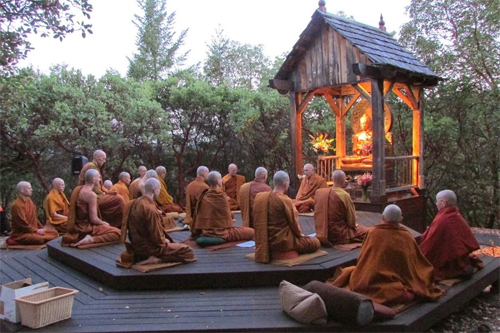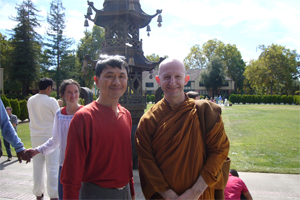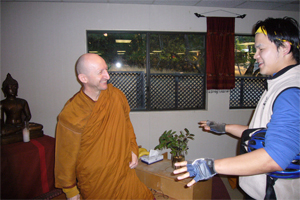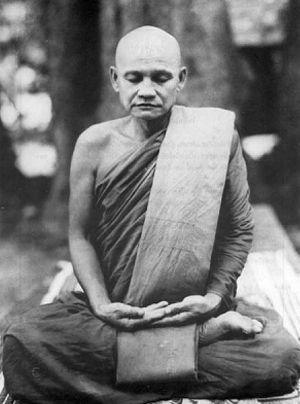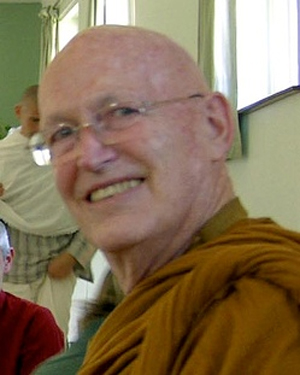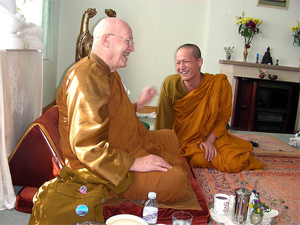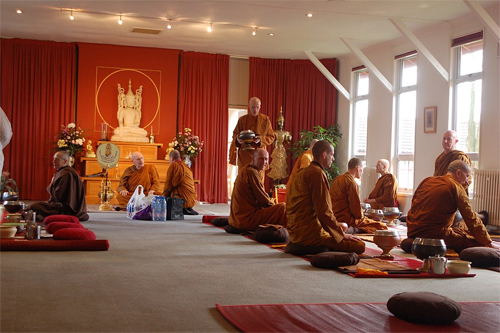The Soul of Man under Socialism
by Oscar Wilde
1891
The chief advantage that would result from the establishment of Socialism is, undoubtedly, the fact that Socialism would relieve us from that sordid necessity of living for others which, in the present condition of things, presses so hardly upon almost everybody. In fact, scarcely anyone at all escapes.
Now and then, in the course of the century, a great man of science, like Darwin; a great poet, like Keats; a fine critical spirit, like M. Renan; a supreme artist, like Flaubert, has been able to isolate himself, to keep himself out of reach of the clamorous claims of others, to stand ‘under the shelter of the wall,’ as Plato puts it, and so to realise the perfection of what was in him, to his own incomparable gain, and to the incomparable and lasting gain of the whole world. These, however, are exceptions. The majority of people spoil their lives by an unhealthy and exaggerated altruism – are forced, indeed, so to spoil them. They find themselves surrounded by hideous poverty, by hideous ugliness, by hideous starvation. It is inevitable that they should be strongly moved by all this. The emotions of man are stirred more quickly than man’s intelligence; and, as I pointed out some time ago in an article on the function of criticism, it is much more easy to have sympathy with suffering than it is to have sympathy with thought. Accordingly, with admirable, though misdirected intentions, they very seriously and very sentimentally set themselves to the task of remedying the evils that they see. But their remedies do not cure the disease: they merely prolong it. Indeed, their remedies are part of the disease.
They try to solve the problem of poverty, for instance, by keeping the poor alive; or, in the case of a very advanced school, by amusing the poor.
But this is not a solution: it is an aggravation of the difficulty. The proper aim is to try and reconstruct society on such a basis that poverty will be impossible. And the altruistic virtues have really prevented the carrying out of this aim. Just as the worst slave-owners were those who were kind to their slaves, and so prevented the horror of the system being realised by those who suffered from it, and understood by those who contemplated it, so, in the present state of things in England, the people who do most harm are the people who try to do most good; and at last we have had the spectacle of men who have really studied the problem and know the life –- educated men who live in the East End -– coming forward and imploring the community to restrain its altruistic impulses of charity, benevolence, and the like. They do so on the ground that such charity degrades and demoralises. They are perfectly right. Charity creates a multitude of sins.
Emile de Lavelaye was quite correct in attributing significance to the publication of "Progress and Poverty," though the seed sown by Henry George took root, not in the slums and alleys of our cities—no intellectual seed of any sort can germinate in the sickly, sunless atmosphere of slums—but in the minds of people who had sufficient leisure and education to think of other things than breadwinning. Henry George proposed to abolish poverty by political action: that was the new gospel which came from San Francisco in the early eighties... It proposed to redress the wrongs suffered by the working classes as a whole: the poverty it considered was the poverty of the wage workers as a class, not the destitution of the unfortunate and downtrodden individuals. It did not merely propose, like philanthropy and the Poor Law, to relieve the acute suffering of the outcasts of civilisation, those condemned to wretchedness by the incapacity, the vice, the folly, or the sheer misfortune of themselves or their relations. It suggested a method by which wealth would correspond approximately with worth; by which the reward of labour would go to those that laboured; the idleness alike of rich and poor would cease; the abundant wealth created by modern industry would be distributed with something like fairness and even equality, amongst those who contributed to its production. Above all, this tremendous revolution was to be accomplished by a political method, applicable by a majority of the voters, and capable of being drafted as an Act of Parliament by any competent lawyer.
To George belongs the extraordinary merit of recognising the right way of social salvation.
-- The History of the Fabian Society, by Edward R. Pease
There is also this to be said. It is immoral to use private property in order to alleviate the horrible evils that result from the institution of private property. It is both immoral and unfair.
Under Socialism all this will, of course, be altered. There will be no people living in fetid dens and fetid rags, and bringing up unhealthy, hunger-pinched children in the midst of impossible and absolutely repulsive surroundings. The security of society will not depend, as it does now, on the state of the weather. If a frost comes we shall not have a hundred thousand men out of work, tramping about the streets in a state of disgusting misery, or whining to their neighbours for alms, or crowding round the doors of loathsome shelters to try and secure a hunch of bread and a night’s unclean lodging. Each member of the society will share in the general prosperity and happiness of the society, and if a frost comes no one will practically be anything the worse.
Upon the other hand, Socialism itself will be of value simply because it will lead to Individualism.
Socialism, Communism, or whatever one chooses to call it, by converting private property into public wealth, and substituting co-operation for competition, will restore society to its proper condition of a thoroughly healthy organism, and insure the material well-being of each member of the community. It will, in fact, give Life its proper basis and its proper environment. But for the full development of Life to its highest mode of perfection, something more is needed. What is needed is Individualism. If the Socialism is Authoritarian; if there are Governments armed with economic power as they are now with political power; if, in a word, we are to have Industrial Tyrannies, then the last state of man will be worse than the first. At present, in consequence of the existence of private property, a great many people are enabled to develop a certain very limited amount of Individualism. They are either under no necessity to work for their living, or are enabled to choose the sphere of activity that is really congenial to them, and gives them pleasure. These are the poets, the philosophers, the men of science, the men of culture -– in a word, the real men, the men who have realised themselves, and in whom all Humanity gains a partial realisation. Upon the other hand, there are a great many people who, having no private property of their own, and being always on the brink of sheer starvation, are compelled to do the work of beasts of burden, to do work that is quite uncongenial to them, and to which they are forced by the peremptory, unreasonable, degrading Tyranny of want. These are the poor, and amongst them there is no grace of manner, or charm of speech, or civilisation, or culture, or refinement in pleasures, or joy of life. From their collective force Humanity gains much in material prosperity. But it is only the material result that it gains, and the man who is poor is in himself absolutely of no importance. He is merely the infinitesimal atom of a force that, so far from regarding him, crushes him: indeed, prefers him crushed, as in that case he is far more obedient.
Of course, it might be said that the Individualism generated under conditions of private property is not always, or even as a rule, of a fine or wonderful type, and that the poor, if they have not culture and charm, have still many virtues. Both these statements would be quite true. The possession of private property is very often extremely demoralising, and that is, of course, one of the reasons why Socialism wants to get rid of the institution. In fact, property is really a nuisance. Some years ago people went about the country saying that property has duties. They said it so often and so tediously that, at last, the Church has begun to say it. One hears it now from every pulpit. It is perfectly true. Property not merely has duties, but has so many duties that its possession to any large extent is a bore. It involves endless claims upon one, endless attention to business, endless bother. If property had simply pleasures, we could stand it; but its duties make it unbearable. In the interest of the rich we must get rid of it. The virtues of the poor may be readily admitted, and are much to be regretted. We are often told that the poor are grateful for charity. Some of them are, no doubt, but the best amongst the poor are never grateful. They are ungrateful, discontented, disobedient, and rebellious. They are quite right to be so. Charity they feel to be a ridiculously inadequate mode of partial restitution, or a sentimental dole, usually accompanied by some impertinent attempt on the part of the sentimentalist to tyrannise over their private lives. Why should they be grateful for the crumbs that fall from the rich man’s table? They should be seated at the board, and are beginning to know it. As for being discontented, a man who would not be discontented with such surroundings and such a low mode of life would be a perfect brute. Disobedience, in the eyes of anyone who has read history, is man’s original virtue. It is through disobedience that progress has been made, through disobedience and through rebellion. Sometimes the poor are praised for being thrifty. But to recommend thrift to the poor is both grotesque and insulting. It is like advising a man who is starving to eat less. For a town or country labourer to practise thrift would be absolutely immoral. Man should not be ready to show that he can live like a badly-fed animal. He should decline to live like that, and should either steal or go on the rates, which is considered by many to be a form of stealing. As for begging, it is safer to beg than to take, but it is finer to take than to beg. No: a poor man who is ungrateful, unthrifty, discontented, and rebellious, is probably a real personality, and has much in him. He is at any rate a healthy protest. As for the virtuous poor, one can pity them, of course, but one cannot possibly admire them. They have made private terms with the enemy, and sold their birthright for very bad pottage. They must also be extraordinarily stupid. I can quite understand a man accepting laws that protect private property, and admit of its accumulation, as long as he himself is able under those conditions to realise some form of beautiful and intellectual life. But it is almost incredible to me how a man whose life is marred and made hideous by such laws can possibly acquiesce in their continuance.
However, the explanation is not really difficult to find. It is simply this. Misery and poverty are so absolutely degrading, and exercise such a paralysing effect over the nature of men, that no class is ever really conscious of its own suffering. They have to be told of it by other people, and they often entirely disbelieve them. What is said by great employers of labour against agitators is unquestionably true. Agitators are a set of interfering, meddling people, who come down to some perfectly contented class of the community, and sow the seeds of discontent amongst them. That is the reason why agitators are so absolutely necessary. Without them, in our incomplete state, there would be no advance towards civilisation. Slavery was put down in America, not in consequence of any action on the part of the slaves, or even any express desire on their part that they should be free. It was put down entirely through the grossly illegal conduct of certain agitators in Boston and elsewhere, who were not slaves themselves, nor owners of slaves, nor had anything to do with the question really. It was, undoubtedly, the Abolitionists who set the torch alight, who began the whole thing. And it is curious to note that from the slaves themselves they received, not merely very little assistance, but hardly any sympathy even; and when at the close of the war the slaves found themselves free, found themselves indeed so absolutely free that they were free to starve, many of them bitterly regretted the new state of things. To the thinker, the most tragic fact in the whole of the French Revolution is not that Marie Antoinette was killed for being a queen, but that the starved peasant of the Vendee voluntarily went out to die for the hideous cause of feudalism.
It is clear, then, that no Authoritarian Socialism will do. For while under the present system a very large number of people can lead lives of a certain amount of freedom and expression and happiness, under an industrial-barrack system, or a system of economic tyranny, nobody would be able to have any such freedom at all. It is to be regretted that a portion of our community should be practically in slavery, but to propose to solve the problem by enslaving the entire community is childish. Every man must be left quite free to choose his own work. No form of compulsion must be exercised over him. If there is, his work will not be good for him, will not be good in itself, and will not be good for others. And by work I simply mean activity of any kind.
I hardly think that any Socialist, nowadays, would seriously propose that an inspector should call every morning at each house to see that each citizen rose up and did manual labour for eight hours. Humanity has got beyond that stage, and reserves such a form of life for the people whom, in a very arbitrary manner, it chooses to call criminals. But I confess that many of the socialistic views that I have come across seem to me to be tainted with ideas of authority, if not of actual compulsion. Of course, authority and compulsion are out of the question. All association must be quite voluntary. It is only in voluntary associations that man is fine.
But it may be asked how Individualism, which is now more or less dependent on the existence of private property for its development, will benefit by the abolition of such private property. The answer is very simple. It is true that, under existing conditions, a few men who have had private means of their own, such as Byron, Shelley, Browning, Victor Hugo, Baudelaire, and others, have been able to realise their personality more or less completely. Not one of these men ever did a single day’s work for hire. They were relieved from poverty. They had an immense advantage. The question is whether it would be for the good of Individualism that such an advantage should be taken away. Let us suppose that it is taken away. What happens then to Individualism? How will it benefit?
It will benefit in this way. Under the new conditions Individualism will be far freer, far finer, and far more intensified than it is now. I am not talking of the great imaginatively-realised Individualism of such poets as I have mentioned, but of the great actual Individualism latent and potential in mankind generally. For the recognition of private property has really harmed Individualism, and obscured it, by confusing a man with what he possesses. It has led Individualism entirely astray. It has made gain not growth its aim. So that man thought that the important thing was to have, and did not know that the important thing is to be. The true perfection of man lies, not in what man has, but in what man is.
Private property has crushed true Individualism, and set up an Individualism that is false. It has debarred one part of the community from being individual by starving them. It has debarred the other part of the community from being individual by putting them on the wrong road, and encumbering them. Indeed, so completely has man’s personality been absorbed by his possessions that the English law has always treated offences against a man’s property with far more severity than offences against his person, and property is still the test of complete citizenship. The industry necessary for the making money is also very demoralising. In a community like ours, where property confers immense distinction, social position, honour, respect, titles, and other pleasant things of the kind, man, being naturally ambitious, makes it his aim to accumulate this property, and goes on wearily and tediously accumulating it long after he has got far more than he wants, or can use, or enjoy, or perhaps even know of. Man will kill himself by overwork in order to secure property, and really, considering the enormous advantages that property brings, one is hardly surprised. One’s regret is that society should be constructed on such a basis that man has been forced into a groove in which he cannot freely develop what is wonderful, and fascinating, and delightful in him –- in which, in fact, he misses the true pleasure and joy of living. He is also, under existing conditions, very insecure. An enormously wealthy merchant may be –- often is -– at every moment of his life at the mercy of things that are not under his control. If the wind blows an extra point or so, or the weather suddenly changes, or some trivial thing happens, his ship may go down, his speculations may go wrong, and he finds himself a poor man, with his social position quite gone. Now, nothing should be able to harm a man except himself. Nothing should be able to rob a man at all. What a man really has, is what is in him. What is outside of him should be a matter of no importance.
With the abolition of private property, then, we shall have true, beautiful, healthy Individualism. Nobody will waste his life in accumulating things, and the symbols for things. One will live. To live is the rarest thing in the world. Most people exist, that is all.
Wilde's final address was at the dingy Hôtel d'Alsace (now known as L'Hôtel), on rue des Beaux-Arts in Saint-Germain-des-Prés, Paris. "This poverty really breaks one's heart: it is so sale [filthy], so utterly depressing, so hopeless. Pray do what you can" he wrote to his publisher. He corrected and published An Ideal Husband and The Importance of Being Earnest, the proofs of which, according to Ellmann, show a man "very much in command of himself and of the play" but he refused to write anything else: "I can write, but have lost the joy of writing".
-- Oscar Wilde, by Wikipedia
It is a question whether we have ever seen the full expression of a personality, except on the imaginative plane of art. In action, we never have. Caesar, says Mommsen, was the complete and perfect man. But how tragically insecure was Caesar! Wherever there is a man who exercises authority, there is a man who resists authority. Caesar was very perfect, but his perfection travelled by too dangerous a road. Marcus Aurelius was the perfect man, says Renan. Yes; the great emperor was a perfect man. But how intolerable were the endless claims upon him! He staggered under the burden of the empire. He was conscious how inadequate one man was to bear the weight of that Titan and too vast orb. What I mean by a perfect man is one who develops under perfect conditions; one who is not wounded, or worried or maimed, or in danger. Most personalities have been obliged to be rebels. Half their strength has been wasted in friction. Byron’s personality, for instance, was terribly wasted in its battle with the stupidity, and hypocrisy, and Philistinism of the English. Such battles do not always intensify strength: they often exaggerate weakness. Byron was never able to give us what he might have given us. Shelley escaped better. Like Byron, he got out of England as soon as possible. But he was not so well known. If the English had had any idea of what a great poet he really was, they would have fallen on him with tooth and nail, and made his life as unbearable to him as they possibly could. But he was not a remarkable figure in society, and consequently he escaped, to a certain degree. Still, even in Shelley the note of rebellion is sometimes too strong. The note of the perfect personality is not rebellion, but peace.
It will be a marvellous thing -– the true personality of man -– when we see it. It will grow naturally and simply, flowerlike, or as a tree grows. It will not be at discord. It will never argue or dispute. It will not prove things. It will know everything. And yet it will not busy itself about knowledge. It will have wisdom. Its value will not be measured by material things. It will have nothing. And yet it will have everything, and whatever one takes from it, it will still have, so rich will it be. It will not be always meddling with others, or asking them to be like itself. It will love them because they will be different. And yet while it will not meddle with others, it will help all, as a beautiful thing helps us, by being what it is. The personality of man will be very wonderful. It will be as wonderful as the personality of a child.
In its development it will be assisted by Christianity, if men desire that; but if men do not desire that, it will develop none the less surely. For it will not worry itself about the past, nor care whether things happened or did not happen. Nor will it admit any laws but its own laws; nor any authority but its own authority. Yet it will love those who sought to intensify it, and speak often of them. And of these Christ was one.
‘Know thyself’ was written over the portal of the antique world. Over the portal of the new world, ‘Be thyself’ shall be written. And the message of Christ to man was simply ‘Be thyself.’ That is the secret of Christ.
When Jesus talks about the poor he simply means personalities, just as when he talks about the rich he simply means people who have not developed their personalities. Jesus moved in a community that allowed the accumulation of private property just as ours does, and the gospel that he preached was not that in such a community it is an advantage for a man to live on scanty, unwholesome food, to wear ragged, unwholesome clothes, to sleep in horrid, unwholesome dwellings, and a disadvantage for a man to live under healthy, pleasant, and decent conditions. Such a view would have been wrong there and then, and would, of course, be still more wrong now and in England; for as man moves northward the material necessities of life become of more vital importance, and our society is infinitely more complex, and displays far greater extremes of luxury and pauperism than any society of the antique world. What Jesus meant, was this. He said to man, ‘You have a wonderful personality. Develop it. Be yourself. Don’t imagine that your perfection lies in accumulating or possessing external things. Your affection is inside of you. If only you could realise that, you would not want to be rich. Ordinary riches can be stolen from a man. Real riches cannot. In the treasury-house of your soul, there are infinitely precious things, that may not be taken from you. And so, try to so shape your life that external things will not harm you. And try also to get rid of personal property. It involves sordid preoccupation, endless industry, continual wrong. Personal property hinders Individualism at every step.’ It is to be noted that Jesus never says that impoverished people are necessarily good, or wealthy people necessarily bad. That would not have been true. Wealthy people are, as a class, better than impoverished people, more moral, more intellectual, more well-behaved. There is only one class in the community that thinks more about money than the rich, and that is the poor. The poor can think of nothing else. That is the misery of being poor. What Jesus does say is that man reaches his perfection, not through what he has, not even through what he does, but entirely through what he is. And so the wealthy young man who comes to Jesus is represented as a thoroughly good citizen, who has broken none of the laws of his state, none of the commandments of his religion. He is quite respectable, in the ordinary sense of that extraordinary word. Jesus says to him, ‘You should give up private property. It hinders you from realising your perfection. It is a drag upon you. It is a burden. Your personality does not need it. It is within you, and not outside of you, that you will find what you really are, and what you really want.’ To his own friends he says the same thing. He tells them to be themselves, and not to be always worrying about other things. What do other things matter? Man is complete in himself. When they go into the world, the world will disagree with them. That is inevitable. The world hates Individualism. But that is not to trouble them. They are to be calm and self-centred. If a man takes their cloak, they are to give him their coat, just to show that material things are of no importance. If people abuse them, they are not to answer back. What does it signify? The things people say of a man do not alter a man. He is what he is. Public opinion is of no value whatsoever. Even if people employ actual violence, they are not to be violent in turn. That would be to fall to the same low level. After all, even in prison, a man can be quite free. His soul can be free. His personality can be untroubled. He can be at peace. And, above all things, they are not to interfere with other people or judge them in any way. Personality is a very mysterious thing. A man cannot always be estimated by what he does. He may keep the law, and yet be worthless. He may break the law, and yet be fine. He may be bad, without ever doing anything bad. He may commit a sin against society, and yet realise through that sin his true perfection.
There was a woman who was taken in adultery. We are not told the history of her love, but that love must have been very great; for Jesus said that her sins were forgiven her, not because she repented, but because her love was so intense and wonderful. Later on, a short time before his death, as he sat at a feast, the woman came in and poured costly perfumes on his hair. His friends tried to interfere with her, and said that it was an extravagance, and that the money that the perfume cost should have been expended on charitable relief of people in want, or something of that kind. Jesus did not accept that view. He pointed out that the material needs of Man were great and very permanent, but that the spiritual needs of Man were greater still, and that in one divine moment, and by selecting its own mode of expression, a personality might make itself perfect. The world worships the woman, even now, as a saint.
Yes; there are suggestive things in Individualism. Socialism annihilates family life, for instance. With the abolition of private property, marriage in its present form must disappear. This is part of the programme. Individualism accepts this and makes it fine. It converts the abolition of legal restraint into a form of freedom that will help the full development of personality, and make the love of man and woman more wonderful, more beautiful, and more ennobling. Jesus knew this. He rejected the claims of family life, although they existed in his day and community in a very marked form. ‘Who is my mother? Who are my brothers?’ he said, when he was told that they wished to speak to him. When one of his followers asked leave to go and bury his father, ‘Let the dead bury the dead,’ was his terrible answer. He would allow no claim whatsoever to be made on personality.
And so he who would lead a Christlike life is he who is perfectly and absolutely himself. He may be a great poet, or a great man of science; or a young student at a University, or one who watches sheep upon a moor; or a maker of dramas, like Shakespeare, or a thinker about God, like Spinoza; or a child who plays in a garden, or a fisherman who throws his net into the sea. It does not matter what he is, as long as he realises the perfection of the soul that is within him. All imitation in morals and in life is wrong. Through the streets of Jerusalem at the present day crawls one who is mad and carries a wooden cross on his shoulders. He is a symbol of the lives that are marred by imitation. Father Damien was Christlike when he went out to live with the lepers, because in such service he realised fully what was best in him. But he was not more Christlike than Wagner when he realised his soul in music; or than Shelley, when he realised his soul in song. There is no one type for man. There are as many perfections as there are imperfect men. And while to the claims of charity a man may yield and yet be free, to the claims of conformity no man may yield and remain free at all.
Individualism, then, is what through Socialism we are to attain to. As a natural result the State must give up all idea of government. It must give it up because, as a wise man once said many centuries before Christ, there is such a thing as leaving mankind alone; there is no such thing as governing mankind. All modes of government are failures. Despotism is unjust to everybody, including the despot, who was probably made for better things. Oligarchies are unjust to the many, and ochlocracies are unjust to the few. High hopes were once formed of democracy; but democracy means simply the bludgeoning of the people by the people for the people. It has been found out. I must say that it was high time, for all authority is quite degrading. It degrades those who exercise it, and degrades those over whom it is exercised. When it is violently, grossly, and cruelly used, it produces a good effect, by creating, or at any rate bringing out, the spirit of revolt and Individualism that is to kill it. When it is used with a certain amount of kindness, and accompanied by prizes and rewards, it is dreadfully demoralising. People, in that case, are less conscious of the horrible pressure that is being put on them, and so go through their lives in a sort of coarse comfort, like petted animals, without ever realising that they are probably thinking other people’s thoughts, living by other people’s standards, wearing practically what one may call other people’s second-hand clothes, and never being themselves for a single moment. ‘He who would be free,’ says a fine thinker, ‘must not conform.’ And authority, by bribing people to conform, produces a very gross kind of over-fed barbarism amongst us.
With authority, punishment will pass away. This will be a great gain -– a gain, in fact, of incalculable value. As one reads history, not in the expurgated editions written for school-boys and passmen, but in the original authorities of each time, one is absolutely sickened, not by the crimes that the wicked have committed, but by the punishments that the good have inflicted; and a community is infinitely more brutalised by the habitual employment of punishment, than it is by the occurrence of crime. It obviously follows that the more punishment is inflicted the more crime is produced, and most modern legislation has clearly recognised this, and has made it its task to diminish punishment as far as it thinks it can. Wherever it has really diminished it, the results have always been extremely good. The less punishment, the less crime. When there is no punishment at all, crime will either cease to exist, or, if it occurs, will be treated by physicians as a very distressing form of dementia, to be cured by care and kindness. For what are called criminals nowadays are not criminals at all. Starvation, and not sin, is the parent of modern crime. That indeed is the reason why our criminals are, as a class, so absolutely uninteresting from any psychological point of view. They are not marvellous Macbeths and terrible Vautrins. They are merely what ordinary, respectable, commonplace people would be if they had not got enough to eat. When private property is abolished there will be no necessity for crime, no demand for it; it will cease to exist. Of course, all crimes are not crimes against property, though such are the crimes that the English law, valuing what a man has more than what a man is, punishes with the harshest and most horrible severity, if we except the crime of murder, and regard death as worse than penal servitude, a point on which our criminals, I believe, disagree. But though a crime may not be against property, it may spring from the misery and rage and depression produced by our wrong system of property-holding, and so, when that system is abolished, will disappear. When each member of the community has sufficient for his wants, and is not interfered with by his neighbour, it will not be an object of any interest to him to interfere with anyone else. Jealousy, which is an extraordinary source of crime in modern life, is an emotion closely bound up with our conceptions of property, and under Socialism and Individualism will die out. It is remarkable that in communistic tribes jealousy is entirely unknown.
Now as the State is not to govern, it may be asked what the State is to do. The State is to be a voluntary association that will organise labour, and be the manufacturer and distributor of necessary commodities. The State is to make what is useful. The individual is to make what is beautiful. And as I have mentioned the word labour, I cannot help saying that a great deal of nonsense is being written and talked nowadays about the dignity of manual labour. There is nothing necessarily dignified about manual labour at all, and most of it is absolutely degrading. It is mentally and morally injurious to man to do anything in which he does not find pleasure, and many forms of labour are quite pleasureless activities, and should be regarded as such. To sweep a slushy crossing for eight hours, on a day when the east wind is blowing is a disgusting occupation. To sweep it with mental, moral, or physical dignity seems to me to be impossible. To sweep it with joy would be appalling. Man is made for something better than disturbing dirt. All work of that kind should be done by a machine.
And I have no doubt that it will be so. Up to the present, man has been, to a certain extent, the slave of machinery, and there is something tragic in the fact that as soon as man had invented a machine to do his work he began to starve. This, however, is, of course, the result of our property system and our system of competition. One man owns a machine which does the work of five hundred men. Five hundred men are, in consequence, thrown out of employment, and, having no work to do, become hungry and take to thieving. The one man secures the produce of the machine and keeps it, and has five hundred times as much as he should have, and probably, which is of much more importance, a great deal more than he really wants. Were that machine the property of all, every one would benefit by it. It would be an immense advantage to the community. All unintellectual labour, all monotonous, dull labour, all labour that deals with dreadful things, and involves unpleasant conditions, must be done by machinery. Machinery must work for us in coal mines, and do all sanitary services, and be the stoker of steamers, and clean the streets, and run messages on wet days, and do anything that is tedious or distressing. At present machinery competes against man. Under proper conditions machinery will serve man. There is no doubt at all that this is the future of machinery, and just as trees grow while the country gentleman is asleep, so while Humanity will be amusing itself, or enjoying cultivated leisure -– which, and not labour, is the aim of man –- or making beautiful things, or reading beautiful things, or simply contemplating the world with admiration and delight, machinery will be doing all the necessary and unpleasant work. The fact is, that civilisation requires slaves. The Greeks were quite right there. Unless there are slaves to do the ugly, horrible, uninteresting work, culture and contemplation become almost impossible. Human slavery is wrong, insecure, and demoralising. On mechanical slavery, on the slavery of the machine, the future of the world depends. And when scientific men are no longer called upon to go down to a depressing East End and distribute bad cocoa and worse blankets to starving people, they will have delightful leisure in which to devise wonderful and marvellous things for their own joy and the joy of everyone else. There will be great storages of force for every city, and for every house if required, and this force man will convert into heat, light, or motion, according to his needs. Is this Utopian? A map of the world that does not include Utopia is not worth even glancing at, for it leaves out the one country at which Humanity is always landing. And when Humanity lands there, it looks out, and, seeing a better country, sets sail. Progress is the realisation of Utopias.
Now, I have said that the community by means of organisation of machinery will supply the useful things, and that the beautiful things will be made by the individual. This is not merely necessary, but it is the only possible way by which we can get either the one or the other. An individual who has to make things for the use of others, and with reference to their wants and their wishes, does not work with interest, and consequently cannot put into his work what is best in him. Upon the other hand, whenever a community or a powerful section of a community, or a government of any kind, attempts to dictate to the artist what he is to do, Art either entirely vanishes, or becomes stereotyped, or degenerates into a low and ignoble form of craft. A work of art is the unique result of a unique temperament. Its beauty comes from the fact that the author is what he is. It has nothing to do with the fact that other people want what they want. Indeed, the moment that an artist takes notice of what other people want, and tries to supply the demand, he ceases to be an artist, and becomes a dull or an amusing craftsman, an honest or a dishonest tradesman. He has no further claim to be considered as an artist. Art is the most intense mode of Individualism that the world has known. I am inclined to say that it is the only real mode of Individualism that the world has known. Crime, which, under certain conditions, may seem to have created Individualism, must take cognisance of other people and interfere with them. It belongs to the sphere of action. But alone, without any reference to his neighbours, without any interference, the artist can fashion a beautiful thing; and if he does not do it solely for his own pleasure, he is not an artist at all.
And it is to be noted that it is the fact that Art is this intense form of Individualism that makes the public try to exercise over it in an authority that is as immoral as it is ridiculous, and as corrupting as it is contemptible. It is not quite their fault. The public has always, and in every age, been badly brought up. They are continually asking Art to be popular, to please their want of taste, to flatter their absurd vanity, to tell them what they have been told before, to show them what they ought to be tired of seeing, to amuse them when they feel heavy after eating too much, and to distract their thoughts when they are wearied of their own stupidity. Now Art should never try to be popular. The public should try to make itself artistic. There is a very wide difference. If a man of science were told that the results of his experiments, and the conclusions that he arrived at, should be of such a character that they would not upset the received popular notions on the subject, or disturb popular prejudice, or hurt the sensibilities of people who knew nothing about science; if a philosopher were told that he had a perfect right to speculate in the highest spheres of thought, provided that he arrived at the same conclusions as were held by those who had never thought in any sphere at all -– well, nowadays the man of science and the philosopher would be considerably amused. Yet it is really a very few years since both philosophy and science were subjected to brutal popular control, to authority -– in fact the authority of either the general ignorance of the community, or the terror and greed for power of an ecclesiastical or governmental class. Of course, we have to a very great extent got rid of any attempt on the part of the community, or the Church, or the Government, to interfere with the individualism of speculative thought, but the attempt to interfere with the individualism of imaginative art still lingers. In fact, it does more than linger; it is aggressive, offensive, and brutalising.

